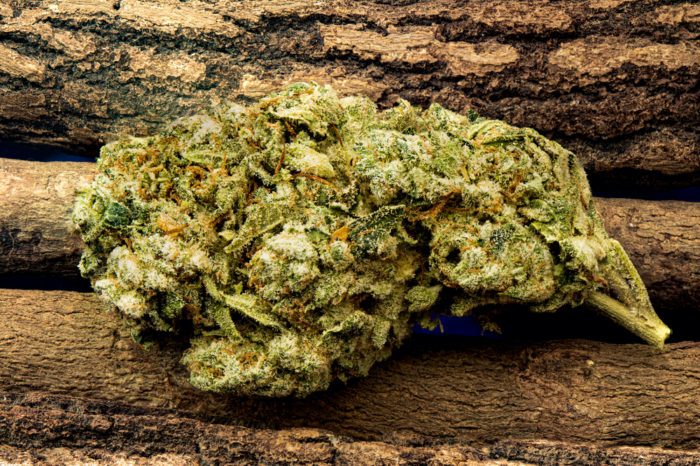Before COVID-19, society’s changing attitude towards cannabis was like a tide slowly lapping against existing power structures.
Now, society’s changing attitude towards cannabis is far more akin to a tidal wave.
Pandemics can do a lot of things. They grind economies to a halt, force the masses indoors, and even make certain world leaders appear utterly clueless. The negative consequences are clear for all to see. But, pandemics may also accelerate any cultural shifts that were due to take off regardless.
Cannabis legalization is one such tectonic cultural shift. Not long ago, mere possession of the herb was cause for a jail sentence. But in 2020, it’s also considered an essential service in many jurisdictions. It’s up there with food, healthcare, and transport. As a result, it is even deemed more essential than church, something that suggests real change is afoot.
The Pandemic is Changing Our Attitude Towards Wellness
More and more Americans are in favor of medicinal or recreational cannabis, and in thirty-three states, it’s now legal in one form or another. Over the past decade, that changing attitude has given way to a trend that seems obvious to everyone – except the federal government.
Amid the Coronavirus pandemic, not only has the number of people talking about cannabis increased, but so too has how people relate to the plant.
According to Brightfield Group, an organization that offers consumer insights and analyses trends in the cannabis market, the conversation around cannabis is changing amid the COVID-19 crisis. When dissecting conversations around COVID-19 and CBD, the team at Brightfield found that “self-care” is what underlies people’s curiosity when it comes to CBD. In what is a positive development in advancing the conversation around medicinal cannabis, Brightfield went on to state that seventy-six percent of CBD consumers say that “well-being” is their primary reason for using it, something that “aligns with growing wellness trends.”
CBD edibles also saw increased consumption volume towards the end of March. According to Brightfield, “this is likely due to CBD brands heavily promoting discounted products and free shipping on most orders.”
Perhaps the most positive development related to much-needed changing attitudes is this. From March 15th to 31st, the top three topics related to cannabis on social media were “social, self-care, and health.” Before the arrival of COVID-19, “relaxation” was in the top three instead of “health.” Brightfield claim that this indicates a “growing concern among users about their health and how they may be coping with quarantine.”
The Increased Frequency of Consumption
Brightfield also noted an increase in cannabis consumption, something they attribute to shelter in place protocols. With kids off school and parents working from home, entire families now live under the one roof for extended periods. And for its part, cannabis may well be what gives people a break, and eases tensions.
According to Brightfield, much of the increase comes from regular consumers, millennials in particular. Brightfield claim that thirty-four percent of respondents admit that they use it more frequently. Meanwhile sixteen percent claim they now consume in higher doses.
Changing Attitudes and New Markets
With the spread of legalization, cannabis is now available to many of those who never considered it before. With its potential to enhance sleep, and to relieve pain and anxiety, cannabis is now more popular than ever among the elderly. The state of New Jersey placed anxiety on the list of qualifying conditions for medicinal cannabis, something that serves to increase cannabis’ reach during the epidemic, and with good reason.
The trend is observable right across the United States. Massachusetts medical cannabis registrations spiked by 245 percent when the state government closed dispensaries amid the outbreak of the pandemic. The demand is there, and many law-abiding citizens will do what they can to obtain it legally.
Cannabis, Church, and the State
When people can’t go to church, but can obtain legal cannabis; and when the wider public begins speaking of cannabis in terms of its health benefits, instead of prison terms or pizza boxes and Netflix, then society finds itself in an infinitely more promising scenario.
When Friedrich Nietzsche proclaimed God to be dead in the late 1800s, few understood the significance of the statement. What he meant was that the human-made values then replacing the need for the church would give rise to totalitarian regimes and the subsequent deaths of millions in the twentieth century.
But our current change isn’t like the early twentieth century. More and more people are embracing cannabis for the right reasons. Whether it’s right or wrong to close churches is another matter entirely. But the fact that the need for cannabis now supersedes churchgoing practice serves to show that society at large is on a march towards broader legalization. And to accepting the plant.
Society’s changing attitude is a necessary part of cultural evolution. As we adopt new ideas, the secret is to preserve whatever wisdom was wrapped up in previous attitudes.
While some may resist, there can be little doubt that legalized cannabis can improve health with responsible use. It can generate tax revenue and employment. And at the very least, it can give everyone something else to do when they can’t go to church!







